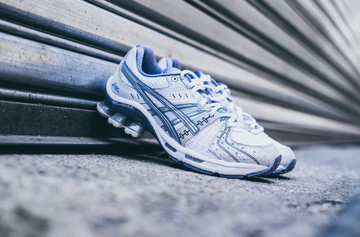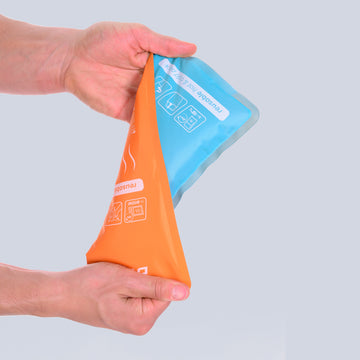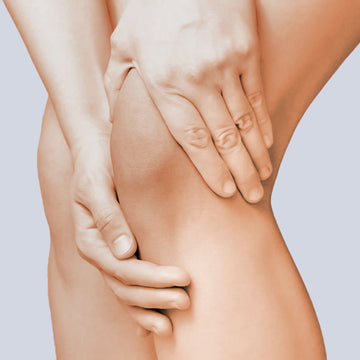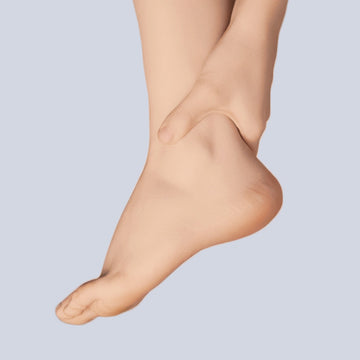Posted by Tia Patel | SEP-17-2020

What to do on a rest day
It's just as important to rest as it is to exercise.
For a runner, taking time off running is like not brushing your teeth in the morning! It's part of our daily routine and one that we’ve worked so hard to perfect.
We all know the benefits of running to strengthen our muscles, relieve stress and improve our moods. But what about the benefits of taking a rest day? It’s actually rest days which help us run faster, allowing our bodies to recover, avoiding injury whilst keeping our spirits motivated to continue training.
We’ve got the science on how rest days can truly help you recover, and some tips and tricks to help you incorporate a rest day into your routine.
Why take a rest day?
Rest days prevent injury and help you improve as a runner. Running causes microscopic tears in your muscles and a breakdown of your entire physiological system, thanks to the impact load. A rest day allows your body to recover from this breakdown, with recovery reducing the risk of overuse injuries and stress fractures, allowing your body to adapt to the training load. Rest days are essential to becoming a faster, stronger runner and achieving your running goals.
Rest days provide mental benefits as well. A weekly break from training allows your mind to rest as well as your body. You will prevent burn-out from training and keep your mind fresh for your hard workouts and ultimately, when they return……..race day! Rest days are also essential for maintaining a sense of enjoyment in running and keeping you motivated. They are also are vital in ensuring optimal performance within training sessions. If the body is well rested and the person training has had sufficient sleep, then they will be able to hold a higher intensity of work in training sessions.
Overtraining as a runner is marked by fatigue, poor performance, loss of appetite and low mood. While overtraining differs from runner to runner, too much running increases the body's stress response, which leads to increased cortisol levels in the blood. This feels great to begin with, but, if the brain releases too much cortisol, this can affect our behavior and mood, yet another important reason to schedule regular rest days. Your family and loved ones will thank you for it!
What to do on a rest day?
Your rest day is when your body repairs from the wear and tear of your runs, so you will receive the most benefits by resting from all workouts.
For most of us, however, complete rest can be a challenge so you may decide to choose a more active recovery day, engaging in gentle low impact activities to get blood flowing to your muscles to help them recover. If staying active is your thing, you may want to try an outdoor walk with your family, or if that’s too much, you can just take the dog? Being outdoors in the fresh air will aid your recovery but without the fatigue of your usual run.
If you like to mix things up a bit, we recommend a gentle swim on your rest day. Swimming keeps the body moving but without the impact on your limbs and joints. If you’re feeling adventurous, you could even take your swim outdoors!
For those of us happy to spend our rest day at home, why not use it as a chance for some mobility work. This is a key element to our training which is often neglected. Here at #TeamGPD, we love a bit of yoga. There are so many options available to us now. You can head to your local studio or gym, or, you can stay right where you are and bring yoga to your living room. Throughout lockdown we’ve been tuned in to @carlaturna_leoga for weekly zoom sessions, and we’ve really noticed the difference in our running. Give it a try!
Stretching and foam rolling are also important rest day activities to loosen up the leg muscles. Using your foam roller before a heat treatment with one of our reusable gelpacks can help to manage common running injuries such as shin splints and tendonitis.
Read our earlier blog post on remedy, cure and recuperation for some tips on post workout recovery.
Optimal recovery does require at least one day a week of complete rest. So choosing to run on your rest day because you feel energetic could do more harm than good. Taking sufficient recovery and training smart will help protect the longevity of your training and keep you fitter and stronger for longer," advises a personal trainer.
Rest day isn’t just about allowing your body to recover, you can use it as an opportunity to spend time with your family and friends. Go for breakfast or a walk if you're normally a morning runner. Spend your rest day wisely, after all, you’ve earned it!
Want to know more about ice or heat... click here!
#TeamGPD
















